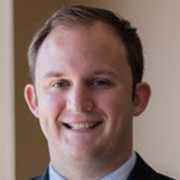
Jordan L. Wulz, PharmD, MPH, BC-ADM (jordan.wulz@cuw.edu), is an associate professor with Concordia University Wisconsin’s School of Pharmacy. Jordan earned his PharmD from Palm Beach Atlantic University in West Palm Beach, FL. He then pursued an MPH degree with Samford University in Birmingham, AL where he also completed a two-year ASHP-accredited residency program in ambulatory care in collaboration with the Jefferson County Department of Health. After his residency training, Jordan had the opportunity to complete a one-year pain management and palliative care traineeship through the ASHP Foundation for which he received an ASHP Foundation, Excellence in Pharmacy scholarship to support this effort. Now, in addition to his faculty role, Jordan is a clinical pharmacist with Progressive Community Health Center, an FQHC in Milwaukee, WI, where he specializes in pain management, substance use disorders, and harm reduction.
Jordan currently serves ASHP as director-at-large for the Section of Ambulatory Care Practitioners (SACP). His previous service to ASHP includes terms as chair and vice chair of the Pain Management and Palliative Care Section Advisory Group (SAG) and alternate WI Delegate for ASHP’s House of Delegates. Jordan previously served a two-year term as a member of the Pharmacy Society of Wisconsin’s Ambulatory Care Advisory Committee.
The practice of ambulatory care pharmacy continues to advance at unprecedented levels. Ambulatory care pharmacists across the nation, many of whom participate as leaders and active members of the ASHP Section of Ambulatory Care Practitioners, are directly responsible for such advancement.
Our section has tirelessly advocated not only for current pharmacists, but indeed for the pharmacists of the future. As beneficiaries of the groundbreaking efforts of pharmacists past, it is our duty to continue what our leaders started by ensuring healthcare provider status is the standard rather than the exception, by advocating for appropriate and equitable reimbursement methods for ambulatory care pharmacy services, and by furthering innovation in the various specialty roles in which ambulatory care pharmacists can contribute their expertise to directly improve health outcomes. To this end, I am committed to exploring how we can enhance the scope of ambulatory care residency training to better support our pharmacists of the future who are likely to find themselves in specialty outpatient clinics (i.e. rheumatology, gastroenterology, neurology, etc.) due to the proliferation of novel biologic medications and hence, a very real need for pharmacy expertise.
I am confident our section is prepared to rise to the occasion of increasingly novel roles and responsibilities, and will continue to significantly contribute to the expansion of high-value pharmacy services. It truly is an honor to be nominated for this position and it would be my privilege to continue to advance the profession with you as chair of the Section of Ambulatory Care Practitioners.
